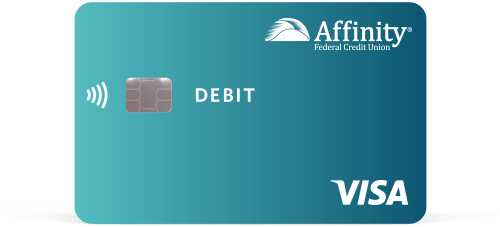- myFICO® Forums
- Types of Credit
- Credit Cards
- Do You Pay More Than 1k In AF?
- Subscribe to RSS Feed
- Mark Topic as New
- Mark Topic as Read
- Float this Topic for Current User
- Bookmark
- Subscribe
- Mute
- Printer Friendly Page
Do You Pay More Than 1k In AF?
Is your credit card giving you the perks you want?
Browse credit cards from a variety of issuers to see if there's a better card for you.
- Mark as New
- Bookmark
- Subscribe
- Mute
- Subscribe to RSS Feed
- Permalink
- Report Inappropriate Content
Re: Do You Pay More Than 1k In AF?
Yes, but I offset it by redeeming offers. With Amex, I call the retention line and get MR point offers that usually match or exceed the dollar value.
- Mark as New
- Bookmark
- Subscribe
- Mute
- Subscribe to RSS Feed
- Permalink
- Report Inappropriate Content
Re: Do You Pay More Than 1k In AF?e
I'm down to one AF card (BCP) and couldn't be happier.
Making sure I make back the AF on multiple cards was too much work.
Edited to add: Just made a liar out of myself. Pulled the trigger this evening on the NFCU Flagship with a $49 AF, I got a $25,000 SL. There are enough perks on this cards for me to justify the 49 bucks, Still very happy to have shedded my high AF Amex Gold, Marriott and Hilton.
American Express Blue Cash Preferred 30K I American Express Blue Cash Everyday 20K I American Express Cash Magnet 5K I Bank of America Customized Cash Rewards Visa 20K | Kinecta MyPerks Rewards MC 35K | Wells Fargo BILT World Elite MC 30K I BMO Harris Cash Back MasterCard 12K | Capital One QS MC 12.5K I NFCU Flagship Rewards Visa 32K I NFCU Amex 28K | NFCU CashRewards Visa 20K I America First CU Cash Visa 20K I Citi Best Buy Visa 10K I Macy’s Amex 20K I Bread Financial American Express 10.5K I AAA Daily Advantage Visa Signature 8.5K I Saks Fifth Avenue World Elite MC 8.3K I JCPenney Mastercard 6K I UCLA Wescom CU Rewards Visa 7K I Pottery Barn Visa 5K I PayPal Cash Back Visa 9K I TD Bank Double Up Visa 5K I USBank Cash Visa 5K I
- Mark as New
- Bookmark
- Subscribe
- Mute
- Subscribe to RSS Feed
- Permalink
- Report Inappropriate Content
Re: Do You Pay More Than 1k In AF?
I'm not a big believer in annual fees. I pay $395 for the Venture X but that one is so easy to get your money back it feels like a no brainer. Otherwise, I'll pay the occasional annual fee in year 1 to get a big sign up bonus but almost always downgrade after that.
- Mark as New
- Bookmark
- Subscribe
- Mute
- Subscribe to RSS Feed
- Permalink
- Report Inappropriate Content
Re: Do You Pay More Than 1k In AF?
@cjesser15 wrote:I'm not a big believer in annual fees. I pay $395 for the Venture X but that one is so easy to get your money back it feels like a no brainer.
And for others, other cards are equally no-brainers, depending on your spend and your reward redemptions. I view annual fees as just part of the data on the card that you need to evaluate.
Clearly, if a no-AF offers practically the same benefits/rewards as an AF one, you should go with the no-AF, but that is hardly ever the case. So, as always, look at the net benefits, assigning values that make sense to you where necessary, and determine if this is the card (that you can reasonably expect to be approvd for) that maximizes that net.
The only thing special/negative about an annual fee is if things greatly change. An example was COVID for those with travel cards. Some were stuck with high annual fees and unable to travel for some, at the time, indeterminate period. But even then the companies made some changes to help, e.g. PYB on the CSR, which while not giving enormous redemption value, at least allowed you to easily cash out URs at 1.5 cpp
- Mark as New
- Bookmark
- Subscribe
- Mute
- Subscribe to RSS Feed
- Permalink
- Report Inappropriate Content
Re: Do You Pay More Than 1k In AF?
I've never found AF cards of any value for my needs, other than to churn, especially if the first year fee is waived. Extra benefits not needed. And on pure value given in rewards there are just as good or better options with no AF.
BofA Platinum Honors:



Citi:


U.S. Bank:

Current Churn For SUB:

Backup Socks:


CB Debit Cards:




- Mark as New
- Bookmark
- Subscribe
- Mute
- Subscribe to RSS Feed
- Permalink
- Report Inappropriate Content
Re: Do You Pay More Than 1k In AF?
@ElvisCaprice wrote:I've never found AF cards of any value for my needs, other than to churn, especially if the first year fee is waived. Extra benefits not needed. And on pure value given in rewards there are just as good or better options with no AF.
Wow, I really have to disagree with AF never offering superior value to a no AF card, @ElvisCaprice. Sure, it's always YMMV and the specifics are relative to a specific use-case and consumer profile. But the right high AF card in the hands of the right consumer can be FAR more lucrative than any no AF options when used appropriately. I'll just use one example.
My Marriott Bonvoy Brilliant has an exorbitant $650 AF!!! ![]() Outrageous, right? But what matters is the value-added. After $300 in annual restaurant credits ($25 per month), the effective AF is down to $350. After the 85K Bonvoy point free night, the remainder is completely wiped out. Bonvoy points are worth, on-average, about 8/10 cpp so 85K x 0.008 = $680. I've used my free nights the past two years on rooms that were worth in excess of that value. The card can reimburse TSA Global Entry, worth $100/4 years or $25 per year on-average. The card earns 6x Bonvoy points on Marriott hotel spending, so a value of approximately 4.8%. But one BIG kicker is the complimentary Platinum Elite status that normally requires at least 50 nights stay. That gives a bonus of 50% more Bonvoy points per dollar spent on Marriott stays.*
Outrageous, right? But what matters is the value-added. After $300 in annual restaurant credits ($25 per month), the effective AF is down to $350. After the 85K Bonvoy point free night, the remainder is completely wiped out. Bonvoy points are worth, on-average, about 8/10 cpp so 85K x 0.008 = $680. I've used my free nights the past two years on rooms that were worth in excess of that value. The card can reimburse TSA Global Entry, worth $100/4 years or $25 per year on-average. The card earns 6x Bonvoy points on Marriott hotel spending, so a value of approximately 4.8%. But one BIG kicker is the complimentary Platinum Elite status that normally requires at least 50 nights stay. That gives a bonus of 50% more Bonvoy points per dollar spent on Marriott stays.*
*Let's break that down. Members (no AF) earn 10 points per stay. Silver status earn 10% more. Gold earns 25% more. Platinum earns 50% more, so 15 points per dollar. For an example, on a $500 hotel stay, I would earn:
- 500 x 4.8% (6 points per dollar) on the credit card = $24
- 500 x 15 for Platinum Status = 7,500 Bonvoy points (at 0.008 = $60 value) The added value over a member is 5 points per dollar, so 500 x 5 = 2,500 * 0.008 = $20.
- The added value for being Platinum and using this card at Marriott gives me a return on spending of 8.8%. ($24+$20=$44/$500). That even discounts the basic member rewards of 10 points per dollar (500 x 10 = 5000 * .008 = $40/$500 = 8.0%.) In total, on my Marriot spending, I earn 16.8%, and 8.8% more than a member with no elite status or Marriot credit card.
Platinum status also delivers a complimentary hot breakfast for the cardholder and guest. That saves me $20 to $25 per stay, and I stay at Marriott hotels multiple times per month. On a week-long vacation trip, DW and I saved $400 on the premium breakfast buffet charges for that trip alone. The card earns AMEX Offers like other AMEX cards. Platinum status also offers complimentary room upgrades. (Value varies but on a beach vacation, I was upgraded to a higher-priced ocean front room on a stay earlier this year.) There is a lot more value-added, but I will stop there for now. But you can see the actual rewards in-practice can far exceed even the 16.8%.
Do I use it on all my purchases? Of course not. I use it where it shines the best, on Marriott spending primarily. But if I wanted some great shopping protections (Extended Warranty enhancement, Price Protection, Return Protection), it's got some value-added outside the hotel. For base earnings at 2 Bonvoy points per dollar, I usually do better with other cards on general spending, but that's not the case at Marriott.
The Brilliant has generous referral bonuses. Since I enjoy the card and am knowledgable about it, I explain it to colleagues and have gotten two 20K point referral bonuses since January 2024, worth $320 in hotel points. ![]()
Hands down, there is not any no-AF card that could have delivered this out-sized value. For others, perhaps not, but AF cards sometimes are well worth the fees.






















Business Cards









Length of Credit > 40 years; Total Credit Limits >$925K
Top Lender TCL - Chase 156.4 - BofA 99.9 - AMEX 95.0 - CITI 95.5 - NFCU 80.0 - SYCH - 65.0
AoOA > 31 years (Jun 1993); AoYA (Oct 2024)
* Hover cursor over cards to see name & CL, or press & hold on mobile app.
- Mark as New
- Bookmark
- Subscribe
- Mute
- Subscribe to RSS Feed
- Permalink
- Report Inappropriate Content
Re: Do You Pay More Than 1k In AF?
@Aim_High wrote:
@ElvisCaprice wrote:I've never found AF cards of any value for my needs, other than to churn, especially if the first year fee is waived. Extra benefits not needed. And on pure value given in rewards there are just as good or better options with no AF.
Wow, I really have to disagree with AF never offering superior value to a no AF card, @ElvisCaprice. Sure, it's always YMMV and the specifics are relative to a specific use-case and consumer profile. But the right high AF card in the hands of the right consumer can be FAR more lucrative than any no AF options when used appropriately. I'll just use one example.
My Marriott Bonvoy Brilliant has an exorbitant $650 AF!!!
Outrageous, right? But what matters is the value-added. After $300 in annual restaurant credits ($25 per month), the effective AF is down to $350. After the 85K Bonvoy point free night, the remainder is completely wiped out. Bonvoy points are worth, on-average, about 8/10 cpp so 85K x 0.008 = $680. I've used my free nights the past two years on rooms that were worth in excess of that value. The card can reimburse TSA Global Entry, worth $100/4 years or $25 per year on-average. The card earns 6x Bonvoy points on Marriott hotel spending, so a value of approximately 4.8%. But one BIG kicker is the complimentary Platinum Elite status that normally requires at least 50 nights stay. That gives a bonus of 50% more Bonvoy points per dollar spent on Marriott stays. It delivers a complimentary hot breakfast for the cardholder and guest. That saves me $20 to $25 per stay, and I stay at Marriott hotels multiple times per month. On a week-long vacation trip, DW and I saved $400 on the premium breakfast buffet charges for that trip alone. The card earns AMEX Offers like other AMEX cards, and has generous referral bonuses. Platinum status also offers complimentary room upgrades. (Value varies but on a beach vacation, I was upgraded to a higher-priced ocean front room on a stay earlier this year.) There is a lot more value-added, but I will stop there for now.
Do I use it on all my purchases? Of course not. I use it where it shines the best, on Marriott spending primarily. But if I wanted some great shopping protections (Extended Warranty enhancement, Price Protection, Return Protection), it's got some value-added outside the hotel. For base earnings at 2 Bonvoy points per dollar, I usually do better with other cards on general spending, but that's not the case at Marriott.
Since I enjoy the card and am knowledgable about it, I explain it to colleagues and have gotten two 20K point referral bonuses since January 2024, worth $320 in hotel points.
Hands down, there is not any no-AF card that could have delivered this out-sized value. For others, perhaps not, but AF cards sometimes are well worth the fees.
And there's the point, it's definitely a YMMV. I don't stay at hotels, I don't eat at restaurants, you have to spend in order to get value in those specific areas. Thus no value for me in this card and the AF is not worth it.
BofA Platinum Honors:



Citi:


U.S. Bank:

Current Churn For SUB:

Backup Socks:


CB Debit Cards:




- Mark as New
- Bookmark
- Subscribe
- Mute
- Subscribe to RSS Feed
- Permalink
- Report Inappropriate Content
Re: Do You Pay More Than 1k In AF?
@ElvisCapriceIf you're the person that just wants to live in the US and not travel anywhere, like you're not willing to go to on a plane then yeah. Honestly, I didn't even expect you to have credit cards either, I would think you're more of a cash/debit person. I know many people that are.
@Aim_HighWhat do you think about the Ritz Carlton credit card? Do you see yourself in the future getting that card?
- Mark as New
- Bookmark
- Subscribe
- Mute
- Subscribe to RSS Feed
- Permalink
- Report Inappropriate Content
Re: Do You Pay More Than 1k In AF?
@GhostCredit wrote:@ElvisCapriceIf you're the person that just wants to live in the US and not travel anywhere, like you're not willing to go to on a plane then yeah. Honestly, I didn't even expect you to have credit cards either, I would think you're more of a cash/debit person. I know many people that are.
Your making false presumptions. The point of AF cards is you need to spend enough in those areas to make them worth the fee offset by reward. If you don't spend in those specific areas, enough, then the AF is not worth it. Often there is other non AF's that would be better value in those cases.
BofA Platinum Honors:



Citi:


U.S. Bank:

Current Churn For SUB:

Backup Socks:


CB Debit Cards:




- Mark as New
- Bookmark
- Subscribe
- Mute
- Subscribe to RSS Feed
- Permalink
- Report Inappropriate Content
Re: Do You Pay More Than 1k In AF?
The Ritz card IMO is a no brainer if you already have the Marriott card and fly at least a bit and want to stay at a nicer Marriott brand hotel whether a JW Marriott, Rirz or St. Regis etc. I used my certificate of 85k at a new St. Regis hotel in Chicago for a friends wedding in the most recent year obviously the value of that stay was great than AF alone. Also the 300 airline credit for incidental is easy to use can either use with certain airline gift cards or used for seat upgrades or other things. This year just used the credit upgrade to a first class ticket on one of my flights so makes it a $150 cc then hotel credit come out ahead. Once again depends on your spend and keep in mind have priority pass (nothing special), tsa/global entry credit and deal with JPM whom answers on one ring and other perks. For a $450/yr AF card it is one of the best offerings out imho.
Obviously if you don't FLY and can't use that credit or don't prefer to stay at a higher end Marriott hotel then stick with a cheaper marriott card whether Amex or Chase version.